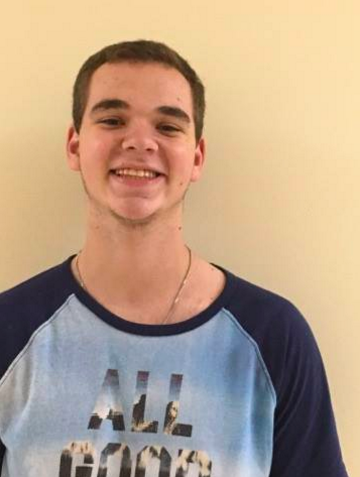Athletes kneel as a way to stand tall

October 10, 2016
As Americans, we take great pride in our country and have many ceremonies to show our patriotism. We get easily offended if anyone questions America’s greatness, but sometimes questioning and even protesting is necessary to progress as a country. Such is the case with the relatively new practice of athletes taking a knee rather than standing for “The Star-Spangled Banner.”
Started by San Francisco 49ers quarterback Colin Kaepernick, taking a knee has continued to gain support from both professional and high school athletes. The protest sparked an ongoing discussion surrounding the history of “The Star-Spangled Banner,” as well as racial inequality in today’s nation. Only the the first two verses of the poem are recited as our national anthem, but the third verse reads: “Their blood has wash’d out their foul footstep’s pollution / No refuge could save the hireling and slave / From the terror of flight or the gloom of the grave, / And the star-spangled banner in triumph doth wave. / O’er the land of the free and the home of the brave. / O thus be it ever when freemen shall stand.”
As the Huffington Post’s John R. Burbank wrote, the “ode to slavery embedded in its original words, it makes you wonder why we should stand at attention, or even sing, this anthem.” The national anthem was a poem written not for people of color, but for the “freemen,” the white men who ran the country, and it did not recognize those who were enslaved. By protesting the anthem, athletes are simply recognizing the injustices in our country that are still far too prevalent.
Although the national anthem as we know it today does not contain this clause, the oppression of the black community in the United States which it references is still widespread. According to a 2013 report from the U.S. Sentencing Commission, there is a massive disparity in prison sentencing, as black men receive almost 20 percent longer sentences than white men who get charged with similar crimes. White Americans use drugs more than black Americans, but black Americans are arrested at an almost 3-to-1 ratio according to a survey conducted by the Bureau of Justice. Following today’s current trends, it is expected that one in three black males can expect to spend a lifetime in prison. Most tragic of all, this year alone, approximately 200 black Americans have been killed by police. Just as they exist in our national anthem, these racial inequalities plague our society and highlight the biases many of us hold.
One of the main complaints over this method of protest is that it disrespects the men and women in the U.S. Armed Forces who serve to defend the flag. This mentality, however, ignores a value that members of the Armed Forces fight to uphold: the right to a peaceful protest. As U.S. Air Force veteran Sunny Anderson put it, “I took an oath and served, so players on a team I don’t even like could have freedom of speech.” Kaepernick is using his First Amendment right to speak out about racial injustice by taking a peaceful stand, the exact same way that Americans have protested for years.
The continued acts of violence by police officers, the unjustly high incarceration rate, and the systematic oppression of people of color are just some of the issues for which taking a knee in protest is trying to raise awareness. While the method of protest may not be perfect, addressing the racial inequality that impacts almost every part of our country is not only a valid reason for protest, but a necessary one. Though some believe that the timing of the protest is inappropriate, we cannot focus on the method while we continue to ignore the message.






